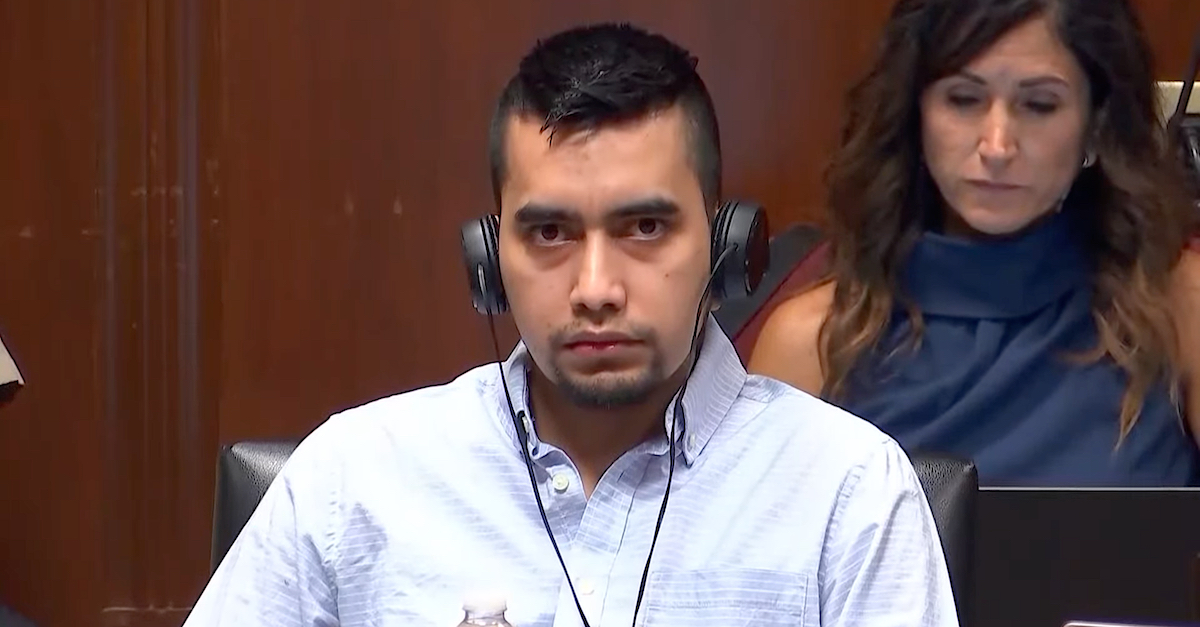
Cristhian Bahena Rivera listens to his defense attorney’s opening statement on May 25, 2021. The defense chose to present it’s opening statement after prosecutors presented their case in chief.
A defense attorney for accused murderer Cristhian Bahena Rivera pleaded for justice in the killing of college student Mollie Tibbetts, 20, by suggesting a shoddy police investigation, cultural clashes, and an unfair interrogation led the defendant to falsely confess to his involvement in Tibbetts’ death.
The defense chose tactically to deliver the 10-minute-long opening statement after the state concluded its case in chief.
“Mollie Tibbetts deserves justice; her family deserves justice; but so does Cristhian Bahena Rivera,” defense attorney Jennifer Frese told the jury. “We won’t just rely on the failure of the case beyond a reasonable doubt. We intend to bring you witnesses, and that’s because you need to hear what they have to say.”
“This case is about a man that immigrated here from Mexico,” Frese continued. “You will hear about Cristhian’s family circumstances and the reasons that he decided to come into this country. You’ll hear about the differences in Mexico,” she said while pointing to the drastically higher salary Bahena Rivera was able to earn in the U.S. when compared to his earning capabilities in his home country.
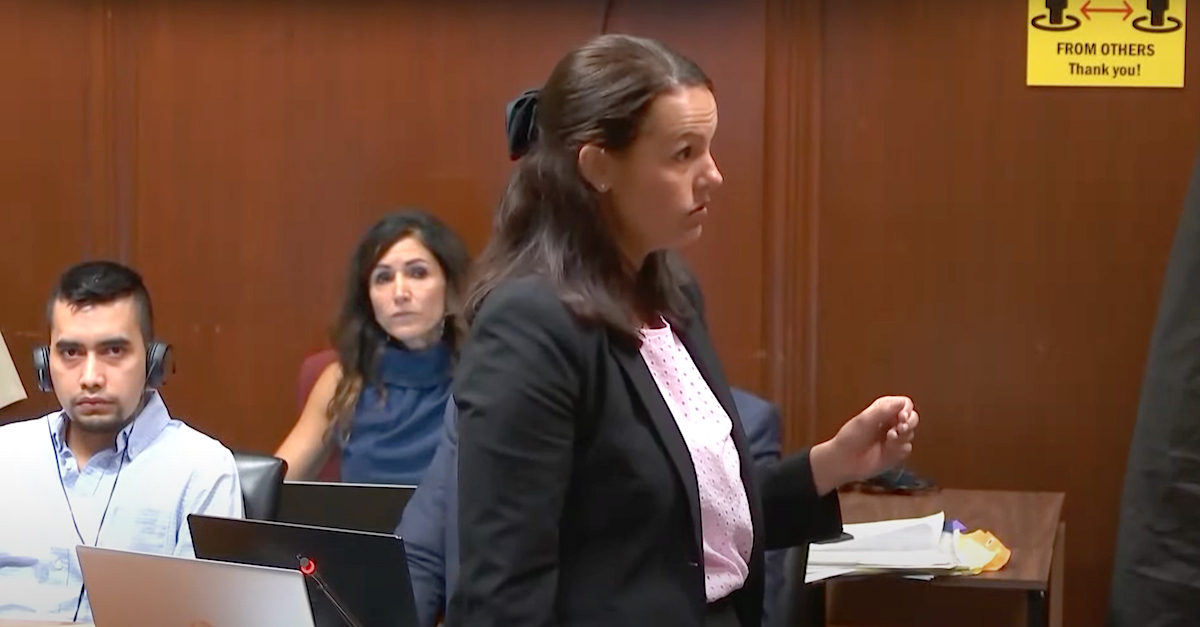
Jennifer Frese delivers an opening statement in the trial of Cristhian Bahena Rivera.
Frese then addressed her client’s immigration status by suggesting it was largely irrelevant to the legal question the jury must decide.
“We must embrace that . . . the evidence here shows you that Mr. Bahena Rivera came to this country. You can agree with it; you cannot agree with it. You can be Republican or you can be Democrat. But the evidence here that you must decide — the evidence here that you must rely on — has nothing to do with that side issue.”
Frese then referenced the burden of proof — beyond a reasonable doubt — which the state must meet in order to convince the jury that Bahena Rivera guilty.
Frese and her co-counsel Chad Frese have long argued that the defendant was “interrogated” by the police after he’d worked a 12-hour shift on an area dairy farm. The 11-hour overnight interrogation, the defense has suggested, produced a coerced confession.
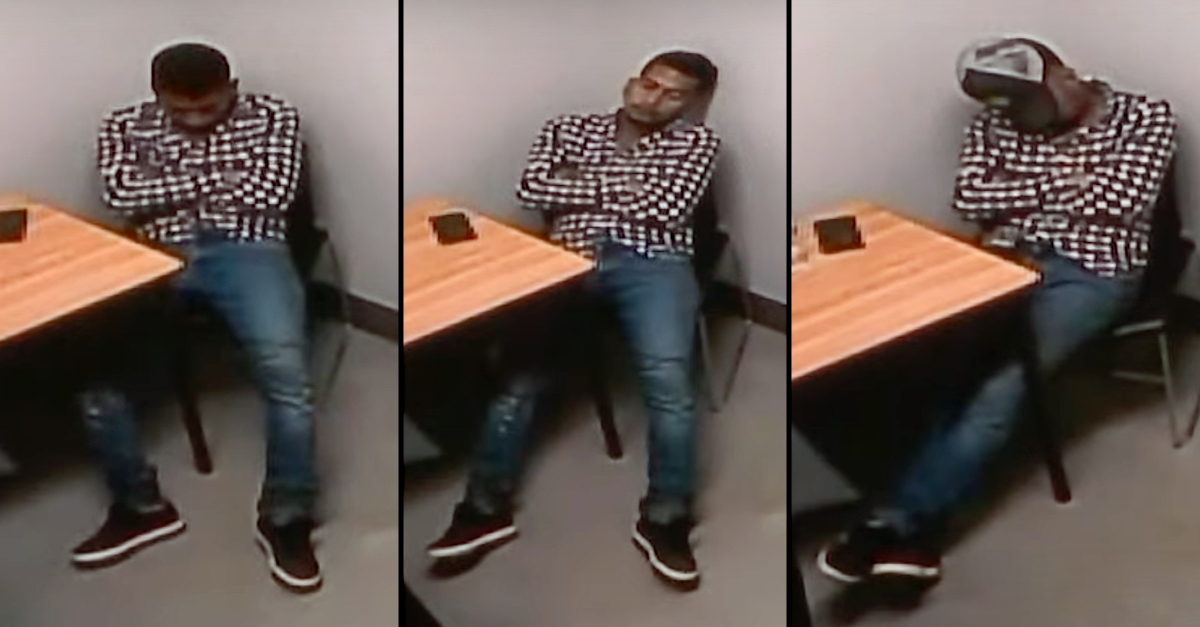
Several video screen grabs taken from a sheriff’s department interrogation video show Cristhian Bahena Rivera sleeping, his attorneys say, during questioning by police.
“He wasn’t in an interview; he was in an interrogation,” Frese said. “There’s no dispute on the facts that my client worked twelve hours at a dairy farm scooping poop, cleaning grounds, and then, at the end of his day, he was brought to the Poweshiek County Sheriff’s Office.”
The prosecutors and police officers have contended that Bahena Rivera was merely interviewed by police and that he was repeatedly told he was free to leave the police station before 11:30 p.m. the night he was interviewed.
The legal difference between a custodial interrogation and an interview where an individual is free to leave is critical to the analysis of whether the authorities must read a defendant his rights under Miranda v. Arizona (1966), Thompson v. Keohane (1995), and Yarborough v. Alvarado (2004). The reading of those rights serves as a de facto notification that a suspect is being arrested and, more importantly, is facing increasing legal jeopardy, so the police seek to delay the point at which an interview becomes a custodial interrogation in order to keep a defendant talking without thinking he needs to remain silent or hire an attorney.
Frese said Bahena Rivera voluntarily went to the sheriff’s office — in part because her client was a “yes man” who did what he was told in order to get by in life.
“Go clean the stable? Yes. Go do this. Yes. Go do that. Yes. And the evidence will show you that law enforcement came to this dairy farm . . . and everybody cooperated,” Frese told the jury.
“Everybody took a buccal swab,” Frese said while suggesting just about everyone in the dairy farm’s labor pool was a pushover. “Everybody did what they needed to do consistent with what they did that day.”
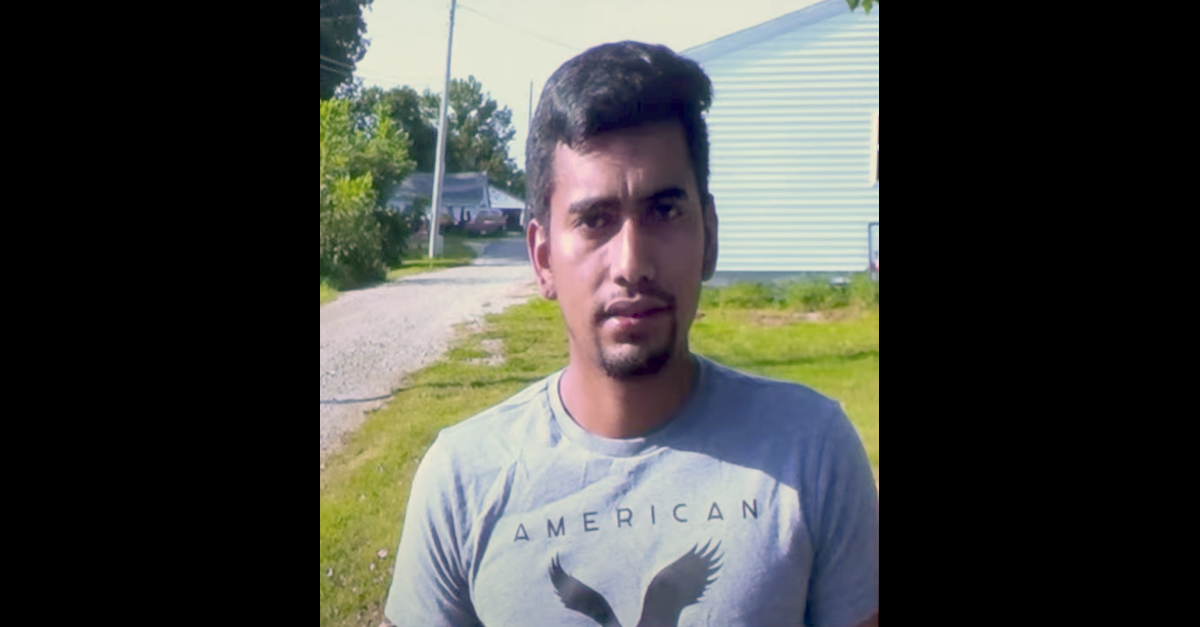
In an exhibit presented at trial, defendant Cristhian Bahena Rivera was photographed by law enforcement when they first approached him. He was driving a black Chevrolet Malibu with distinctive chrome mirrors and door handles. A vehicle matching that description was captured on surveillance video circling the area where Tibbetts disappeared several days earlier.
“You will hear about this interrogation, and that it went on and on and on,” Frese said. “Unfortunately, you’re not going to be able to see the whole thing; it’s in Spanish . . . but what the evidence has shown you, and what the evidence will show you is that there was a systematic confrontation with my client.”
“And then they started to confront him with the evidence,” Frese continued. “They confronted him with this videotape. They confronted him with these pictures. And they said, ‘you know, we don’t believe you. We don’t believe that you weren’t there.’ And the confrontation continues until it was put in my client’s head — ‘perhaps you blacked out.’ The state — in this case — they got what they wanted. And they closed the case. They got what they needed. There was an intense amount of pressure, that’s what the evidence has shown you, to close this case, to arrest someone for this vicious crime. And instead of continuing to work the case — instead of continuing to work the evidence — they just submitted it to you.”
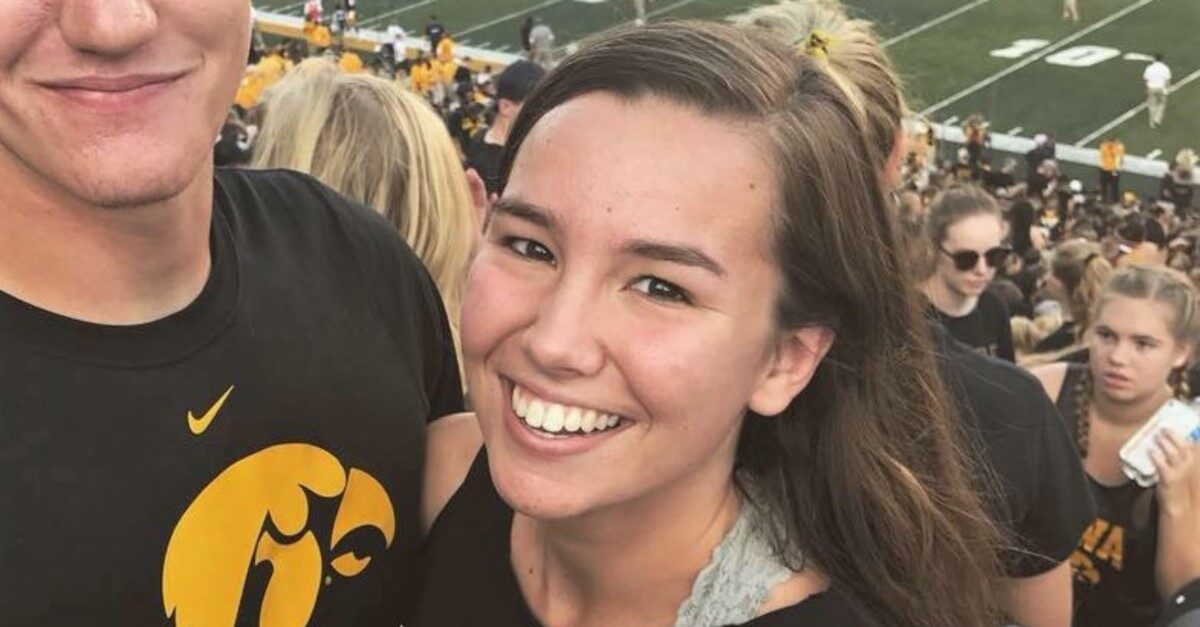
Mollie Tibbetts is seen in a social media image which was widely circulated on a missing persons poster.
Law enforcement officers have testified Bahena Rivera told them he blacked out when he confronted Tibbetts while jogging. They say Bahena Rivera admitted confronting Tibbetts because he thought she was “hot.” According to the official account, Bahena Rivera said he blacked out what happened next, which he claimed would happen to him from time to time when he became angry. The next thing the defendant claimed to recall was that Tibbetts’ ear phones were in his car and her body was in his trunk, law enforcement officers testified.
The defense suggested it was law enforcement who fed Bahena Rivera at least part of the story.
Frese then admitted that Mollie Tibbetts’ DNA turned up on Bahena Rivera’s trunk liner. But she said other unknown DNA was also present which law enforcement could not identify. She said “no other DNA was provided” or collected by law enforcement to identify the unknown DNA — despite saying earlier than many people at the farm where Bahena Rivera worked were swabbed.
Frese said alternate suspects were “ignored or not looked into” and said it was her “duty” to bring all such evidence to the jury.
She then reminded jurors that they all carried different life experiences into this case but were connected by one legally critical thread: “each one of you has the power to say no” to the state’s charges, she said.
While cross-examining several state witnesses, Bahena Rivera’s defense attorneys insinuated alternate suspects may have been responsible for Tibbetts’ death.
[images via the Law&Crime Network]